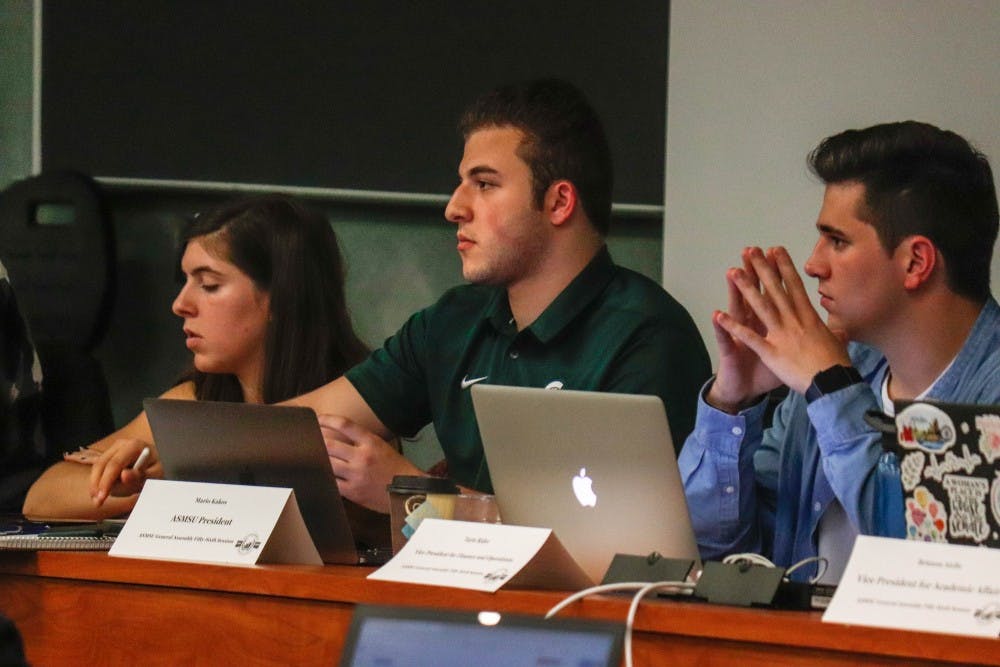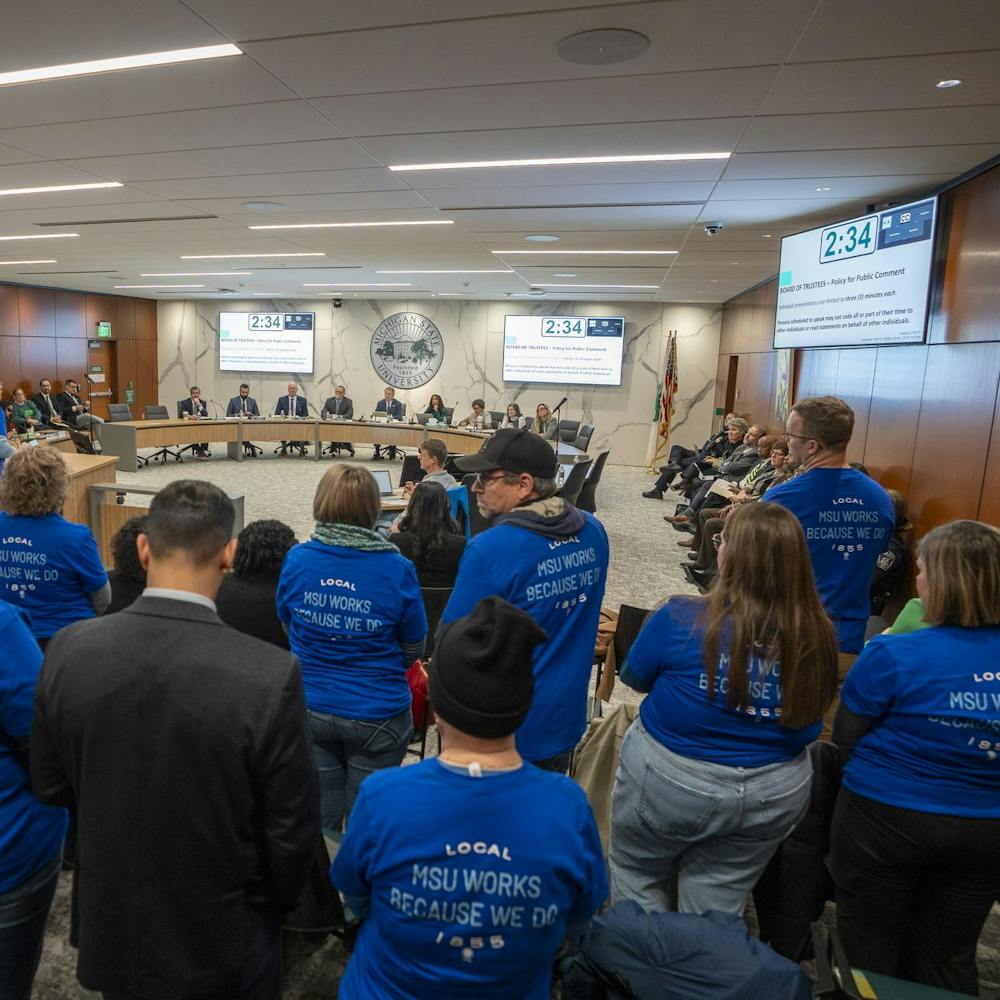Story by Anna Spidel
ASMSU discusses livestreaming meetings, constituent feedback

At Thursday night's Associated Students of Michigan State University, or ASMSU, general assembly meeting, two main themes were present: transparency and being loyal to students.
ASMSU introduced bills opposing reducing the current add and drop period for classes, making public participation at Board of Trustees meetings more accessible and more.
New feedback feature on website
Recently, ASMSU has added a new feature to their website that allows students to send feedback directly to their representatives.
All messages received through this new portal will be read aloud to the general assembly so that all of the representatives may take the comments into consideration.
There were three comments this week that voiced opposition to a new bill that may require sophomores to live on campus.
The new feature aims to help representatives better serve their constituents and provide students with an easy and accessible way to contact their representatives about any concerns they might have.
Mario Kakos, acting president of ASMSU, said the new tool will help serve members of the public who don’t have the means to voice their opinions in person.
“Our public comment feature allows more accessibility for students or members of the community who can’t be present physically at our meetings. It also helps us hear what students want to talk about - any grievance they may have, any support for any item on our agenda,” Kakos said. “It just ensures that we can have as much representation as possible throughout our meetings.”
ASMSU looks to go live with meetings
The majority of discussion at the meeting was centered around bill 56-05, which would allocate $5,000 to livestreaming ASMSU meetings to the public.
The estimated total cost of the project is $3,344.94, which raised questions from several representatives on the necessity of a $5,000 budget. Representative Green, who introduced the bill, asserted that a flexible budget was necessary to account for any technological issues that may arise.
READ MORE
Though it is unclear how many students are expected to tune into the livestreams, many representatives voiced support for the bill due to its potential to increase civic engagement.
Adam Green, representative for the James Madison College as well as the bill’s main sponsor, said many of his constituents have been asking to livestream meetings.
“I’m not sure if there was ever any polling done,” Green said. “A lot of the other representatives have expressed similar sentiments regarding their own colleges. People wanting to be more accessible, be more transparent. So, they, too, had concurred with my view that a lot of people were wanting a livestream. Not a specific number, but hopefully we can find out how many people are tuning in once we start getting it rolling.”
The current plan is to livestream via YouTube, and to potentially begin streaming on Facebook Live or other major social media platforms. Green said the move is crucial to adapting to the current digital age we live in.
“As we stated in the GA, there’s been a large push just in our culture to move things just to the digital modes of running certain things," he said. "Student government, and governments in general, should meet the students and the constituents where they’re at. They don’t have to come seek us out — we come to them, we’re serving them."
Green said that all meetings will be streamed in their entirety, with the exception of deliberations on candidates. This is all part of the bill’s main incentive to maintain transparency.
Support student media! Please consider donating to The State News and help fund the future of journalism.
The bill passed with 29 approvals.
In another attempt to increase awareness for ASMSU and its efforts, another bill was introduced that would allocate $1,200 to the marketing department to hire outreach staff.
The staff will consist of two to three people who will coordinate and staff bi-weekly tabling events. These events will offer information about ASMSU to any students who may need it.
The bill, introduced by Representative Aridi, aims to spread information about ASMSU and increase its presence on campus. This move comes after a relatively poor turnout at this year’s elections. It is not intended to replace a representative's contact with their constituents.
The bill passed with 30 approvals.
Speaking up against shortened add/drop periods
The general assembly strongly supported on bill that focused on recent discussions by the MSU administration about shortening the add/drop period for classes.
The bill opposes these decisions and supports maintaining the length of the current add/drop periods. The proposed shortened add/drop period is meant to incentivize students to drop classes quicker so that more spots can open up for students on waitlists for classes.
The bill to oppose a shortened add/drop period passed unanimously.
Requiring board meetings to allow public comment without application
A current bill in the Michigan Legislature would require the meetings of the governing boards of all public universities to be open to the public. The bill proposes an amendment to the state constitution of 1963. The resolution can be viewed here.
According to multiple representatives, meetings of the MSU Board of Trustees do not allow for public comment without a prior application. The move to support Senate Joint Resolution E would define this behavior as unconstitutional, thus requiring the board meetings to allow for free public comments.
The bill passed unanimously.






